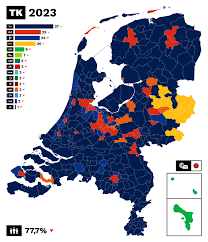Understanding the Netherlands National Elections 2025

Introduction
The Netherlands is gearing up for its national elections set to take place in 2025, a pivotal moment for the country’s political landscape. With pressing issues like climate change, immigration, and economic recovery from the COVID-19 pandemic at the forefront, the elections are crucial for the course of Dutch policy and governance. As political parties solidify their agendas and voters engage in discussions, the outcome of these elections could shape the Netherlands’ future trajectory.
Current Political Climate
As of 2023, the current governing coalition is led by Prime Minister Mark Rutte’s People’s Party for Freedom and Democracy (VVD), which has been in power since October 2010. Leading up to the 2025 elections, various parties are already outlining their platforms to appeal to the electorate. Key opposition parties like the Labour Party (PvdA), the Green Left (GroenLinks), and the right-wing Party for Freedom (PVV) are preparing to challenge the current administration, with a focus on issues such as social welfare reform and stricter immigration policies.
Potential Impact of Current Policies
The impact of ongoing policies, particularly regarding climate initiatives, remains a hot topic. The Netherlands has set ambitious goals to cut greenhouse gas emissions by 49% by 2030 compared to 1990 levels, prompting discussions on energy production, transportation, and sustainable urban development. Voters are increasingly concerned about how these policies will affect their everyday lives, making climate action a central issue heading into the elections.
Electoral Process and Voter Engagement
The electoral process in the Netherlands allows for a proportional representation system, ensuring that even smaller parties have the chance to hold seats in Parliament. This system encourages a multiparty landscape, often resulting in coalition governments. Voter engagement is vital in this setting, and upcoming initiatives aim to enhance public participation, particularly among younger voters who are increasingly disenchanted with traditional political processes.
Conclusion
As the Netherlands approaches its national elections in 2025, the political environment is rife with opportunities and challenges. The outcome will not only determine the direction of national policy but could also influence broader European trends in governance and democracy. Voters hold significant power in this upcoming electoral cycle, with their choices likely to reflect their aspirations for a sustainable and equitable future. The significance of these elections extends beyond the national stage, as they may signal shifts in voter sentiment and priorities that could echo throughout Europe.









